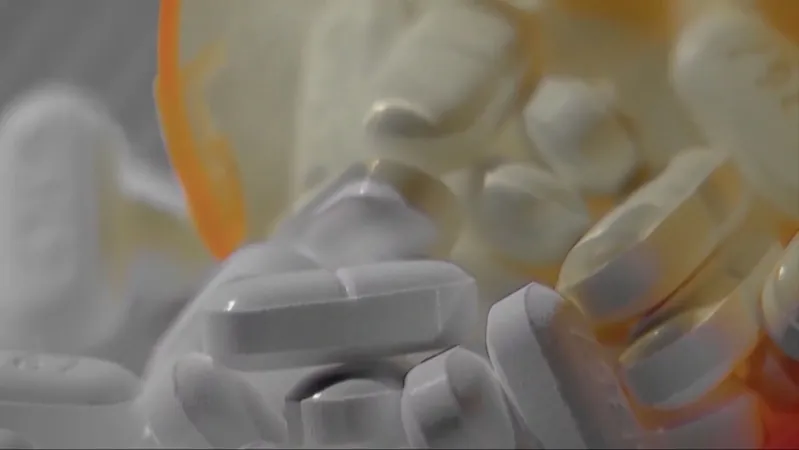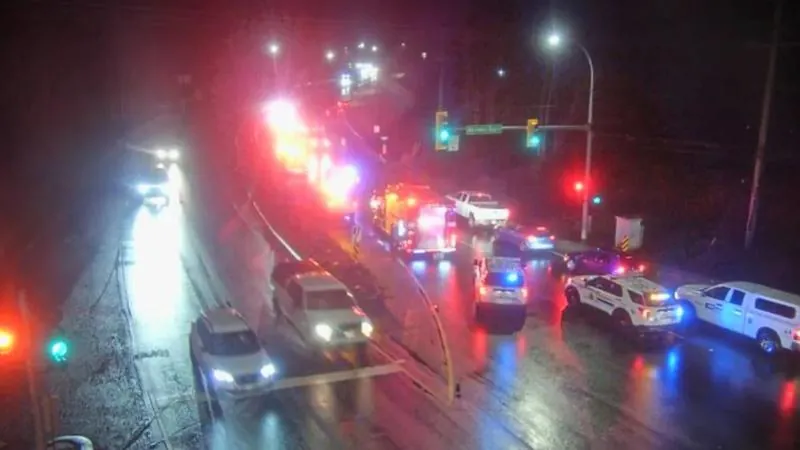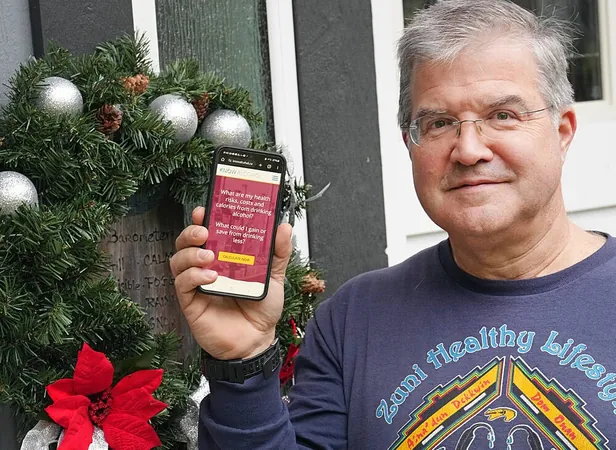
A Father’s Heartbreak: The Silent Crisis of Opioid Overdoses in Montreal
2025-01-04
Author: Amelia
Rising Opioid Fatalities in Quebec
In an alarming turn of events, new statistics indicate a sharp rise in opioid-related deaths in Quebec, contrasting with a national decline. While Canada as a whole may be witnessing a drop of over 55% in opioid fatalities from 2023 to 2024, the province of Quebec has reported a staggering 30% increase in drug-related deaths in just the first half of 2024, according to the public health institute (INSPQ).
A Father's Loss
Christian Boivin, a devastated father who lost his 15-year-old son, Mathis, to an overdose in December 2023, is calling for greater efforts in overdose prevention. “We think about Mathis all the time. Even after a year, it feels like it was just yesterday,” he shared, emphasizing the enduring pain of his loss.
The Dangers of Synthetic Opioids
Mathis's tragic overdose was linked to Nitazene, a synthetic opioid known to be five times more potent than fentanyl. Boivin is deeply concerned about the increasing strength of illicit drugs fueling a dangerous landscape for users. “It’s more dangerous than before, and it’s going to continue to go like this,” he warned.
Surge in Emergency Room Visits
Further illustrating this dire situation, emergency room visits for possible opioid poisonings in Quebec have surged by 38% when compared to the previous year. According to psychologist Dr. Gabrielle Page, “The majority of the public health crisis around opioids and overdoses does not come from prescribed opioids but from street drugs like fentanyl.” She emphasizes the need for a careful assessment of prescribing practices, noting that while opioids can be beneficial for some patients, they can lead to misuse and addiction for others.
Staggering Statistics
The harsh reality is that since 2016, Canada has recorded nearly 50,000 opioid-related deaths. However, the INSPQ's figures tell a different story in Quebec: between January and September 2023, there were 363 opioid overdose-related deaths, which alarmingly rose to 485 during the same period in 2024. The complete figures for the last quarter of 2024 have yet to be published.
A Call to Action
Despite the national figures suggesting progress, Boivin believes there’s much more to be done. “It’s a silent crisis,” he lamented. “The government has allocated some funds, but is it really enough? We discuss it, but there is not enough action taken to prevent these tragedies.”
The Importance of Communication
Boivin urges parents to engage in conversations with their children about the dangers of drug use, stressing the importance of education on topics like the signs of overdose, harm reduction strategies, and ensuring access to life-saving measures such as naloxone. “You have to educate yourself,” he said firmly. “What are the symptoms? Do you know about harm reduction? Are you prepared as a parent to ensure it doesn’t happen to your child?”
Every Life Matters
As the crisis continues to unfold, the call to action grows louder for communities, parents, and legislators alike—because every life lost is not just a statistic; it’s a story that's now left untold.









 Brasil (PT)
Brasil (PT)
 Canada (EN)
Canada (EN)
 Chile (ES)
Chile (ES)
 España (ES)
España (ES)
 France (FR)
France (FR)
 Hong Kong (EN)
Hong Kong (EN)
 Italia (IT)
Italia (IT)
 日本 (JA)
日本 (JA)
 Magyarország (HU)
Magyarország (HU)
 Norge (NO)
Norge (NO)
 Polska (PL)
Polska (PL)
 Schweiz (DE)
Schweiz (DE)
 Singapore (EN)
Singapore (EN)
 Sverige (SV)
Sverige (SV)
 Suomi (FI)
Suomi (FI)
 Türkiye (TR)
Türkiye (TR)